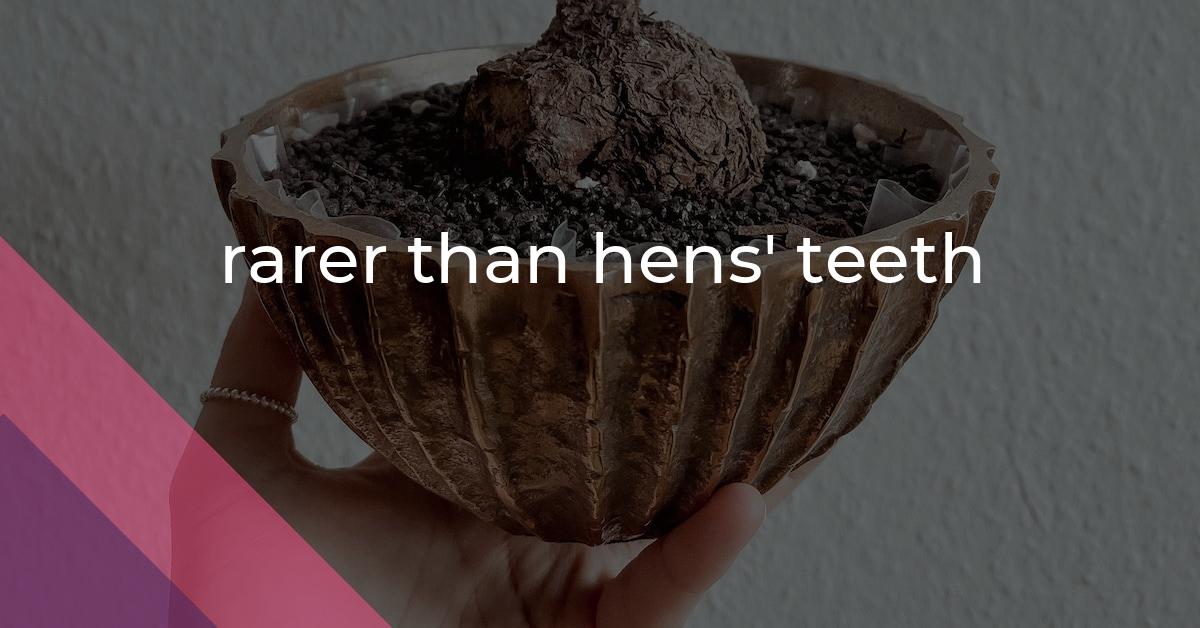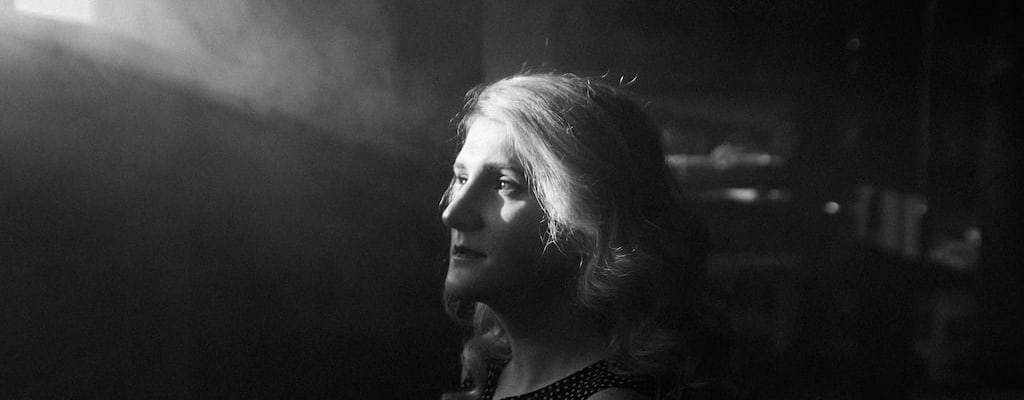rarer than hens’ teeth: Idiom Meaning and Origin
What does ‘rarer than hens' teeth’ mean?
The idiom "rarer than hens' teeth" means something is extremely uncommon or scarce. This comparison refers to the fact that chickens do not have teeth, making them virtually non-existent.

Idiom Explorer
The idiom "tooth-and-nail" means to fight or compete fiercely and aggressively, using every means necessary to achieve victory or success.
The idiom "second-rate" refers to something of inferior quality or standard compared to others in the same category.
The idiom "same difference" is used to express the idea that two things may seem different but are actually quite similar or have no significant difference.
The idiom "rubber chicken" refers to a comedic prop used in performances, often associated with jokes that are old or clichéd. It symbolizes something that is overused or lacking originality and effectiveness.
The idiom "rough around the edges" means that someone or something may appear imperfect or unrefined, but still has potential or qualities that make them interesting or valuable.
The idiom "rough and ready" means something or someone that is not refined or polished, but is practical and effective in a basic way.
The idiom "raw deal" means to receive unfair treatment or a bad outcome in a situation.
An idiom used to describe someone or something that is highly unusual or unique; as rare as a rare animal.
The idiom "pull teeth" means a difficult or challenging task, often involving persuading or extracting information from someone who is uncooperative or reluctant.
Uncommon Findings
"Rarer than hens' teeth" is an idiom that is used to describe something that is extremely scarce or virtually non-existent. The idiom emphasizes the extreme rarity or scarcity of something. The phrase has its roots in the mid-19th century and gained popularity over time.
The idiom relies on the contrasting elements of the rarity of hens' teeth and the abundance of other items. Hens do not possess teeth, making the concept of hens' teeth incredibly rare and unusual. This impossibility highlights the scarcity of the subject being referred to, emphasizing its extreme unlikelihood or infrequency.
The idiom's meaning is clear and straightforward. When something is said to be 'rarer than hens' teeth', it emphasizes its rarity or scarcity beyond the usual level. The phrase adds emphasis or an element of surprise to a statement about the unavailability or scarcity of something.
Due to its simplicity and vivid imagery, the idiom has been widely adopted in the English language. It can be found in a variety of contexts, from casual conversations to written literature.
The idiom "rarer than hens' teeth" shares a common theme with the idiom "hen's tooth". Both idioms use the notion of hens' teeth to emphasize rarity or scarcity. While hens do not have teeth in reality, the concept of finding a "hen's tooth" implies that something is extremely rare or hard to find.
Another related idiom is "rare animal". This idiom refers to something or someone that is unusually uncommon or scarce. The concept of a rare animal aligns with the idea of something being "rarer than hens' teeth", emphasizing its extreme rarity or scarcity.
The idiom "tooth-and-nail" also has a connection to the phrase "rarer than hens' teeth". "Tooth-and-nail" means to fight fiercely or with great determination. The intensity of this phrase echoes the emphasis on rarity or scarcity found in "rarer than hens' teeth". When something is in such short supply or hard to find, people may be willing to fight tooth and nail to obtain it.
Lastly, there is the idiom "pull a rabbit out of a hat". This idiom refers to the act of doing something surprising or impressive. It is often used to describe someone who is able to produce a remarkable or unexpected result. This idiom can be related to "rarer than hens' teeth" in that both invoke a sense of surprise or astonishment when something unusual or scarce is achieved.
Overall, the idiom "rarer than hens' teeth" captures the essence of extreme rarity or scarcity. Its widespread use and vivid imagery contribute to its effectiveness as a linguistic tool. Despite its simplicity, the idiom continues to serve as a powerful means of emphasizing the extreme unlikelihood or infrequency of something. Its connection to related idioms, such as "hen's tooth", "rare animal", "tooth-and-nail", and "pull a rabbit out of a hat", further enhances its versatility and impact in the English language.
Example usage
Examples of how the idiom "rarer than hens' teeth" can be used in a sentence:
- 1. Finding a parking space in downtown during rush hour is rarer than hens' teeth.
- 2. Genuine acts of kindness from strangers are rarer than hens' teeth these days.
- 3. In the desert, water sources are rarer than hens' teeth.
The idiom "rarer than hens' teeth" expresses extreme rarity or scarcity, emphasizing the idea that something is exceptionally rare, almost nonexistent, or extremely hard to find. It compares the rarity of something to the fact that hens do not have teeth, which is an inherent characteristic making it highly improbable. The idiom can be used in various situations to emphasize the scarcity of an object, event, or occurrence.
More "Scarcity" idioms
We missed the mark - nothing found.



